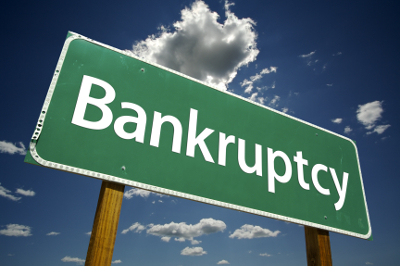Declaring bankruptcy involves a series of qualifications and disclosures. You have to qualify for declaring bankruptcy under certain chapters of the bankruptcy code. Once you do qualify, you will have to disclose a lot of information to the bankruptcy court. Your income and assets are critical disclosures.
Do I have to report all my cash to the bankruptcy trustee?
A lot depends on the type of bankruptcy you declare. If you are filing under Chapter 7, then the bankruptcy trustee can pay back unsecured creditors with any non-exempt assets that you have. You can protect the amount of cash you have through state exemptions. A�Further, in a Chapter 7 bankruptcy you will need to pass the Means Test in order to qualify to file under that chapter. The Means Test dictates that if your income is higher than the Arizona median amount for your household size then you will not qualify for Chapter 7 bankruptcy.1 You may consider Chapter 13 bankruptcy if you pass the means test so you could pay back some of your unsecured debts under that chapter.2 If your debts are not mostly consumer debts, though, then you may not have to go through the means test.3
If your state does not protect cash with a cash exemption, there could be a wildcard exemption that you can use.4 A�Arizona does not allow cash exemptions, so you will have to report cash. However, it does have a $300.00 exemption for money in one bank account. A.R.S. A�33-1126(A)(9). If you are married and filing jointly, then you can double this amount to $600.00. This means you can have a little bit of cash on you when you file for bankruptcy. After you file bankruptcy, it may not matter that you get paid and have more than $300.00 in the bank.5
Can I sell non-exempt or exempt assets for cash?
You may. However, the cash proceeds from exempt assets will lose its exempt status.6 You can sell your non-exempt assets as long as you sell them for fair market value.7 Whether or not you should consider selling non-exempt assets depends on the type of bankruptcy you file. If you are filing a Chapter 13 bankruptcy then you do not have to worry about selling non-exempt assets. However, in order to keep non-exempt property you will usually have to pay the bankruptcy trustee the value of that non-exempt asset.8
Most of the assets in your bankruptcy will probably be exempt if you are filing under Chapter 7, so you probably won’t have to worry about selling off your assets. As long as you do not fraudulently transfer your assets you should be alright. Every bankruptcy is different and involves unique circumstances with a unique set of finances. While you may be able to sell off assets, a lot will depend on your specific situation and the type of bankruptcy that best suits you.
Find out more about reporting cash in a bankruptcy from the AZ bankruptcy attorneys at Ariano & Reppucci, PLLC.
[1] Arizona Bankruptcy Means Test, arizonabankruptcylaw.com, http://www.arizonabankruptcylaw.com/means-test/ (last visited Jan. 7, 2015).
2 Id.
3 Id.
4 Patricia Dzikowski, Can I Keep Cash in Chapter 7 Bankruptcy?, nolo.com, http://www.nolo.com/legal-encyclopedia/can-i-keep-cash-chapter-7-bankruptcy.html (last visited Jan. 5, 2015).
5 How Much Cash Can I Have and File for Bankruptcy In Arizona?, skiblaw.com (Oct. 15, 2014), http://skibalaw.com/how-much-cash-can-i-have-and-file-for-bankruptcy-in-arizona/.
6 Patricia Dzikowski, supra note 4.
7 Can I Sell My Stuff Before Filing For Bankruptcy?, skibalaw.com (Jan. 27, 2012), http://skibalaw.com/can-i-sell-my-stuff-before-filing-for-bankruptcy/.
8 Arizona Bankruptcy Exemptions, arizonabankruptcylaw.com, http://www.arizonabankruptcylaw.com/exemptions.html (last visited Jan. 7, 2015).


